While most brands have a characteristic that they hope will make their products stand out from the crowd, contract winemaker Defined Wine takes a distinctly different approach.
“The last thing we want is for people to taste a wine and immediately recognise it as ‘obviously made by Defined’,” explained founder and chief executive Henry Sugden.
“It’s important that we don’t have a ‘house style’, and I was relieved after our first trade tasting when several influential wine buyers commented on how different all the wines were. Instead we want gatekeepers to be reassured that it’s Defined quality when they see the back label. It is really important that the grower’s brand is front and central, with us just the support act in the background.”
The individuality that Henry and director of winemaking Nick Lane are always aiming for also lies behind the name of the company. “Vineyards ‘define’ the wine style they want and then we work with them to achieve the best possible interpretation of that ambition,” said Henry.
It’s clearly a philosophy that finds favour amongst the Bridge, Canterbury-based company’s growing customer base, as it has sparked a rapid, organic growth since the business was set up in 2019. In 2025 Defined will work with nearly 60 vineyards and brands, the majority of which will deliver between seven and 20 tonnes of grapes to the winery at Bridge or to the new East Anglian facility at Holton St Mary, just over the Essex border in Suffolk.
And it’s not just the growers who are impressed. At the WineGB Awards 2025, Defined wines in their various guises picked up three gold medals, 14 silver and 13 bronze. “Our award winners were mainly still wines,” Henry added, “as we haven’t been around long enough for long lees-aged sparkling wines to have been entered yet.”
As Defined doesn’t get involved in selling the wines they make, leaving that to the growers, they don’t know exactly how many award winners they have produced. “We don’t enter any of the competitions, so it’s impossible to keep tabs on quite how well we do,” explained Nick. “We get enough feedback to know we have picked up many awards and trophies over the years,” though.
The Defined focus is purely on contract winemaking, with the client at the heart of that process. “We have no vineyards and no brands, and we don’t provide services that are not part of the winemaking process,” said Henry.
“We stick to making wine because we are good at it and it allows us to put all our energies into producing top quality products.” This ethos applies not just to the growers for whom they make wine but for the wineries for which they provide bottling, disgorging and laboratory analysis.
That focus doesn’t, though, mean Defined isn’t on hand to help growers, particularly the smaller clients, market the end result of its hard work.
“Our onboarding process for new clients includes talking to them about their route to market, their branding and how they plan to sell the wine,” Henry explained. “Clearly if people don’t sell their wine, then they won’t be asking us to make it in future, so it’s a symbiotic relationship and one that clients always find useful.
“Because we don’t have our own brand we are never in competition with our clients and so we pass on contacts, introduce them to buyers and journalists and generally try to help them sell the wine we have worked with them to create.”
That support has included holding an annual trade tasting, initially at the winery in Bridge but more recently in London, making it easier to attract buyers and journalists and generally raise the profile of English Wine – and next year Defined will go one better.
“We have teamed up with the London Wine Fair to help turn next year’s event into the premium showcase for English wine, reflecting the fact that last year that was the most searched-for term amongst the independent wine merchants, sommeliers, journalists and influencers at the event – and there was very little of it.
“So, on Tuesday 19 May we will have a ‘pop-up’ space by the main entrance to showcase the range and quality of English wine on offer.”
As it approaches its seventh vintage, Defined Wine can look back on significant organic growth. The Bridge winery doubled in size ahead of the 2023 harvest and now covers some 2,000 square metres thanks to an expansion that also improved the ergonomics and ‘flow’ of the set up.
“Growth up to 2022 had been about squeezing in what we could, but the expansion in 2023 gave us a chance to create more of a masterplan which allowed further growth to be more planned,” said Nick.
Meanwhile the opening of Defined’s second winery in a converted agricultural building in 2024 has allowed the business to support new growers in the rapidly expanding East Anglian wine belt.
While the obvious thought is that this is a response to the Crouch Valley’s astonishing growth as a wine region, Henry’s planning is more strategic. “Yes, we will be delighted to work with growers in that part of Essex, but the Crouch Valley is only just the other side of the Thames from our Kent site,” he explained.
“Our winery at Holton St Mary is further north, allowing us to support a wider spread of growers across East Anglia and beyond. It’s also ideally sited, easily accessible from a trunk road and in an agricultural location with neighbours who understand the way businesses like ours work.”
Nora Leitz, who spent a year in Bridge before moving to become the winemaker in the East Anglia facility, took experienced cellar hand Greg Harries with her. A year after opening, they are already looking after 20 clients and, in Henry’s own words, “growing faster than Kent in terms of new vineyards”. The success should come as no real surprise, given that it was “client driven” and followed requests from growers north of the Thames who wanted to work with Defined locally.
In tandem with growing the capacity of Bridge and opening Holton St Mary, Defined has also invested in staff, equipment and in its well-equipped laboratory, which is run by full-time technicians Irena Petsova and Alex Ball.
They work closely with Cristiano Zorzan, Defined’s dedicated technical winemaker, who focuses on improving quality, at the same time as researching and developing new approaches. The laboratory offers analysis to external wine makers who value Defined’s impressive facilities and is also beginning the process of obtaining ISO accreditation for certain analytical parameters.
Investment in state-of-the-art laboratory equipment reflects the focus on quality that Henry has brought to Defined since the early days of the business.
“When we started up, I bought a second-hand earth filter for £4,500,” he recalled. “But I was told that in order to make quality wine consistently, what I really needed was a crossflow filter for £70k. So I bit the bullet and upgraded – and since then we have continued to invest in the best equipment for making top quality wine.”
That equipment now includes 278 tanks across a wide range of capacities in Bridge and a further 90 to serve customers in East Anglia, mainly supplied by Letina. There are five presses at the ‘home’ winery and a further three in Holton St Mary. All the tanks are temperature controlled and benefit from the latest technology.
An upgraded destemmer has enhanced Defined’s red wine capacity, while the winery has also invested in barrels, bottling and disgorging equipment. Much of the kit is looked after by Wayne Russell Services, ensuring everything keeps working smoothly, particularly during harvest.
New Zealander Nick arrived in 2020 from Dom Perignon, joining Poppy Pease-Watkin, who is currently on maternity leave. Since then, the number of winemakers has trebled, with Nick, Poppy, Cristiano and Nora joined by South African Janneke van der Merwe and Bella Ching, who was born in Ashford, Kent, but grew up in
New Zealand.
With Cristiano hailing from Brazil and Nora from Germany, it is a strong and talented team that boasts a vast amount of experience gained from vineyards and wineries around the world. There are four permanent cellar hands across the two locations, two of whom learned their skills with Defined.
“Our winemakers’ experience allows them to challenge the status quo,” said Nick. Stylistic decisions are left up to the client. “It varies considerably,” Nick elaborated. “Sometimes we just follow instructions, such as when we are used as an overflow facility for another winery, or we work collaboratively with a grower’s own consultant winemaker to get the best out of their grapes.
“On other occasions we act as a sounding board or contribute ideas that help the grower ‘define’ what they want. Or we are just given the grapes and asked to produce a great wine from them.”
In 2024, Defined made 140 wines across 28 different varieties from vineyards in 11 counties. Perhaps surprisingly, given the difficult growing conditions, the winery produced more still wine than sparkling (56% as opposed to 44%), with reds accounting for one bottle in every ten. It was also the first year in which the team pressed more Pinot Noir, at 33% of the throughput, than Chardonnay (24%).
Defined currently employs a workforce of 27 full time equivalent people on the two sites, with as many as 15 temporary staff helping ease the load during harvest, set to be a particularly early event in 2025.
Pulling together the various strands and making sure everything runs smoothly – no easy feat given the scale of the operation, the number of different clients and half a dozen winemakers across two sites – is Michelle Brock, who co-ordinates all bottling, labelling and disgorging.
Defined works with some of the region’s bigger vineyards but also looks after smaller clients. “One thousand litres is the minimum quantity for one wine in a tank, but generally we only take on new clients who have at least five tonnes of grapes,” said Henry. “We have some smaller legacy clients we continue to look after, but the important thing is that we look to add value to every grower we work with.”
Collaboration is important to the Defined team, both between winemakers and with the client and, in some cases, their own advisers. Beyond that, Defined has a strong working relationship with NIAB and the University of Kent at Canterbury as it seeks to extend the boundaries of English wine.
Sustainability is important, with Defined proud of its status as a founder member of WineGB’s Sustainable Wines of Great Britain (SWGB) certification scheme. The Bridge winery has a large solar PV scheme on the roof, while the company is trialling a new waste water management system, reducing water use, and has introduced lightweight glass and recycled cardboard in its packaging. A new member of the team, Chris Norris, has been brought in to head up the winery’s ‘green’ approach, as well as providing technical expertise with bottling, labelling and disgorging.
While Cristiano is looking at ISO accreditation for Defined’s laboratory procedures, the winery has already achieved SALSA (Safe and Local Supplier Approval) and continues to look to raise the bar with external validation. “Quality has always been, and continues to be, at the heart of Defined Wine’s approach,” Henry concluded.
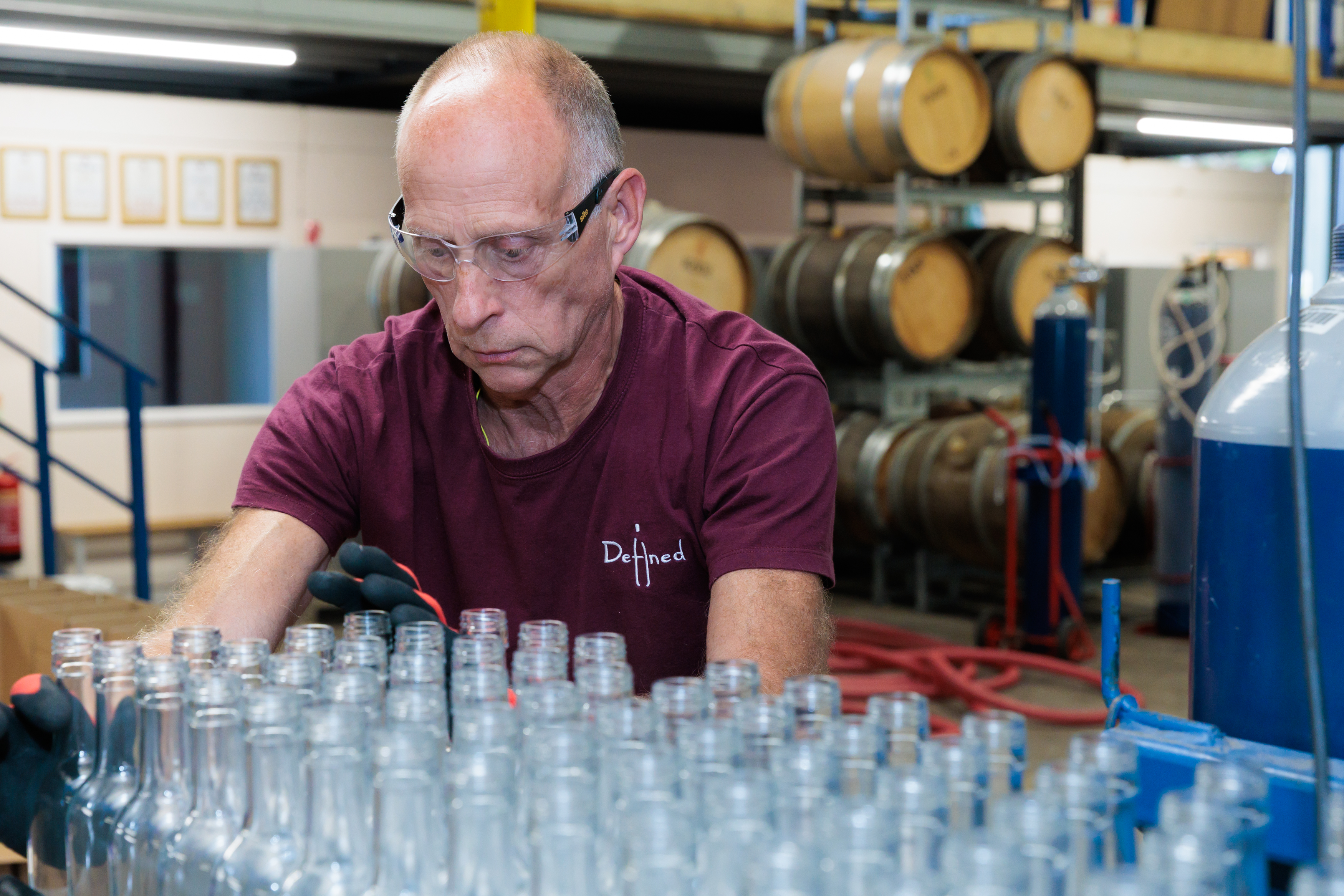
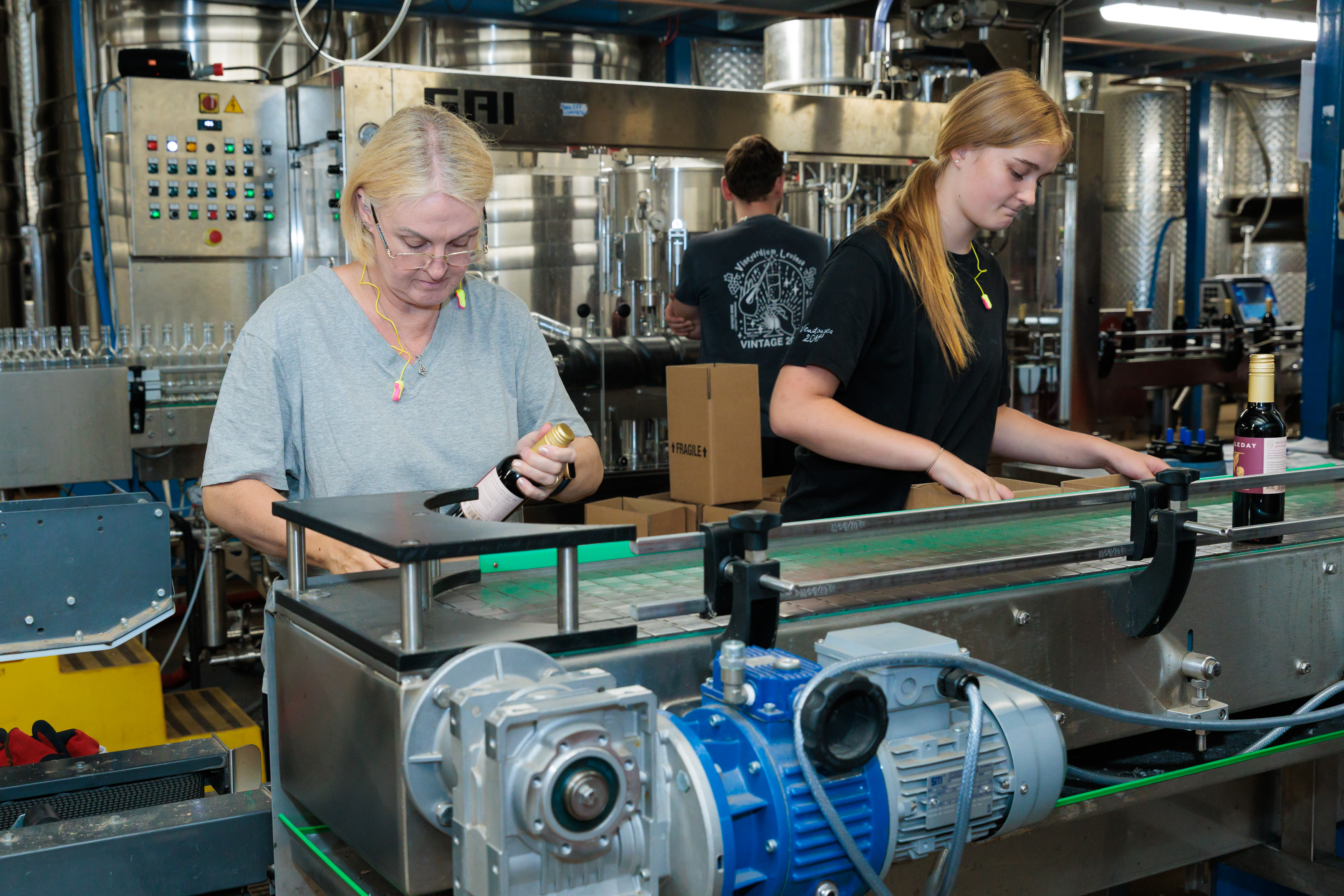
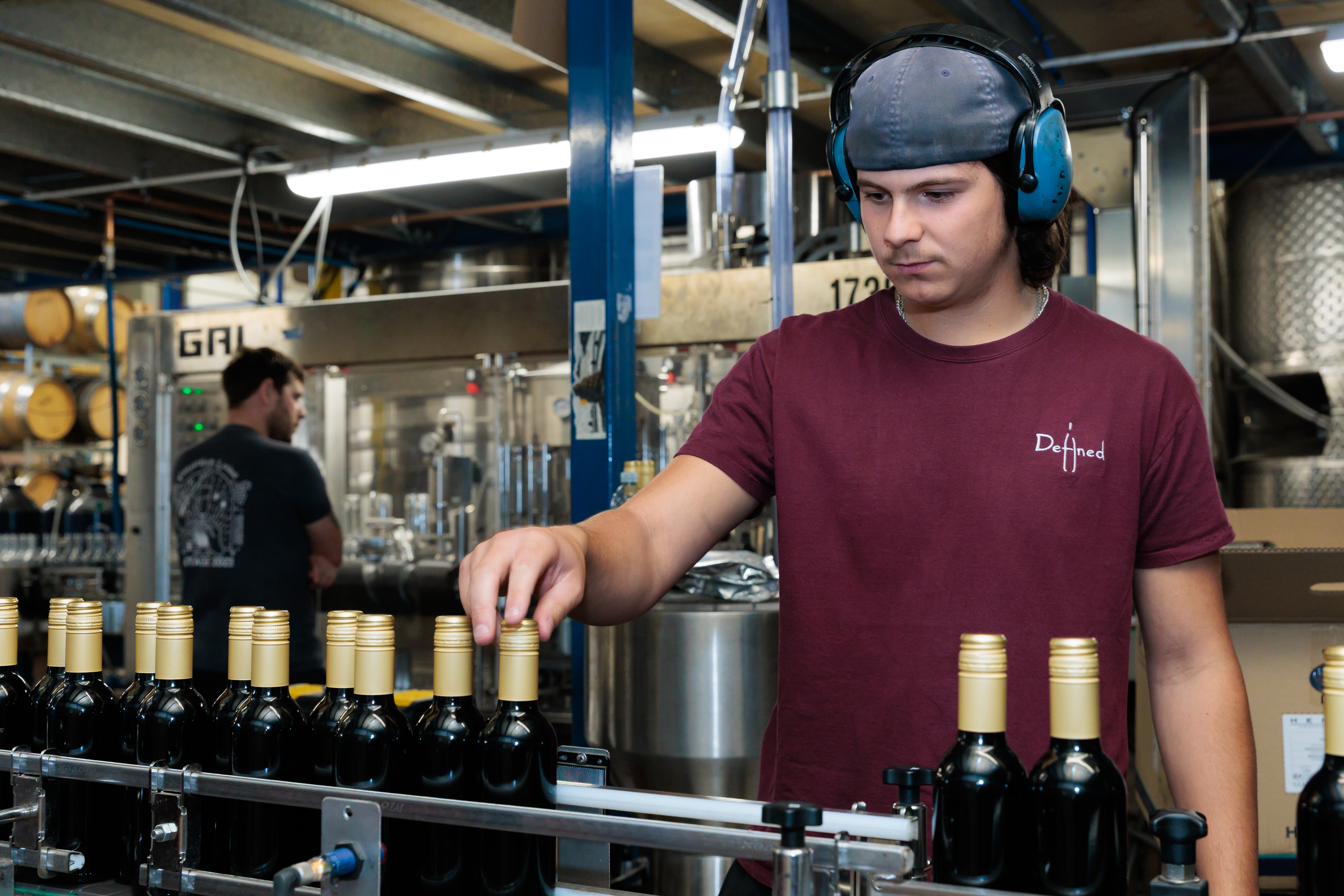
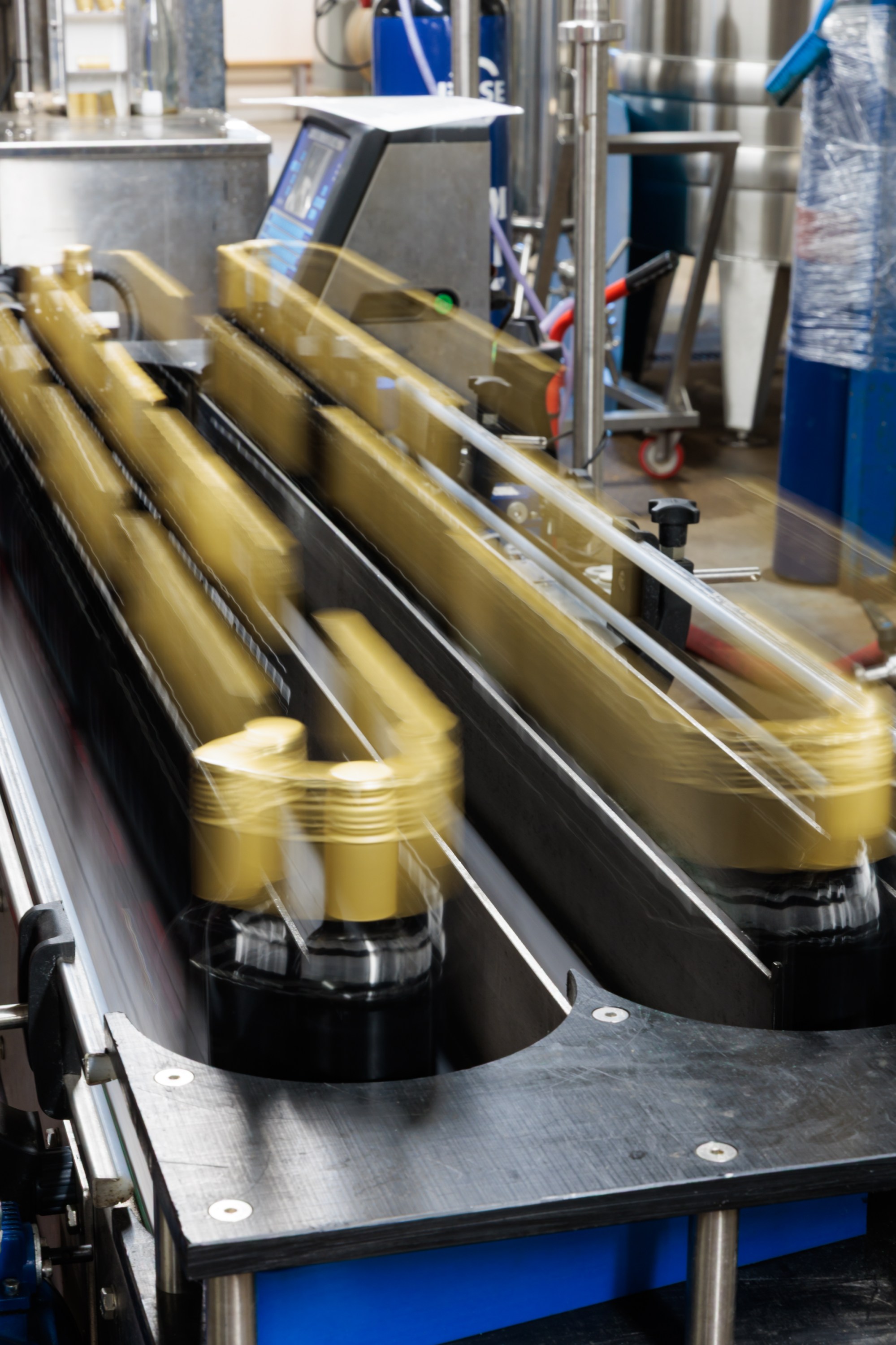

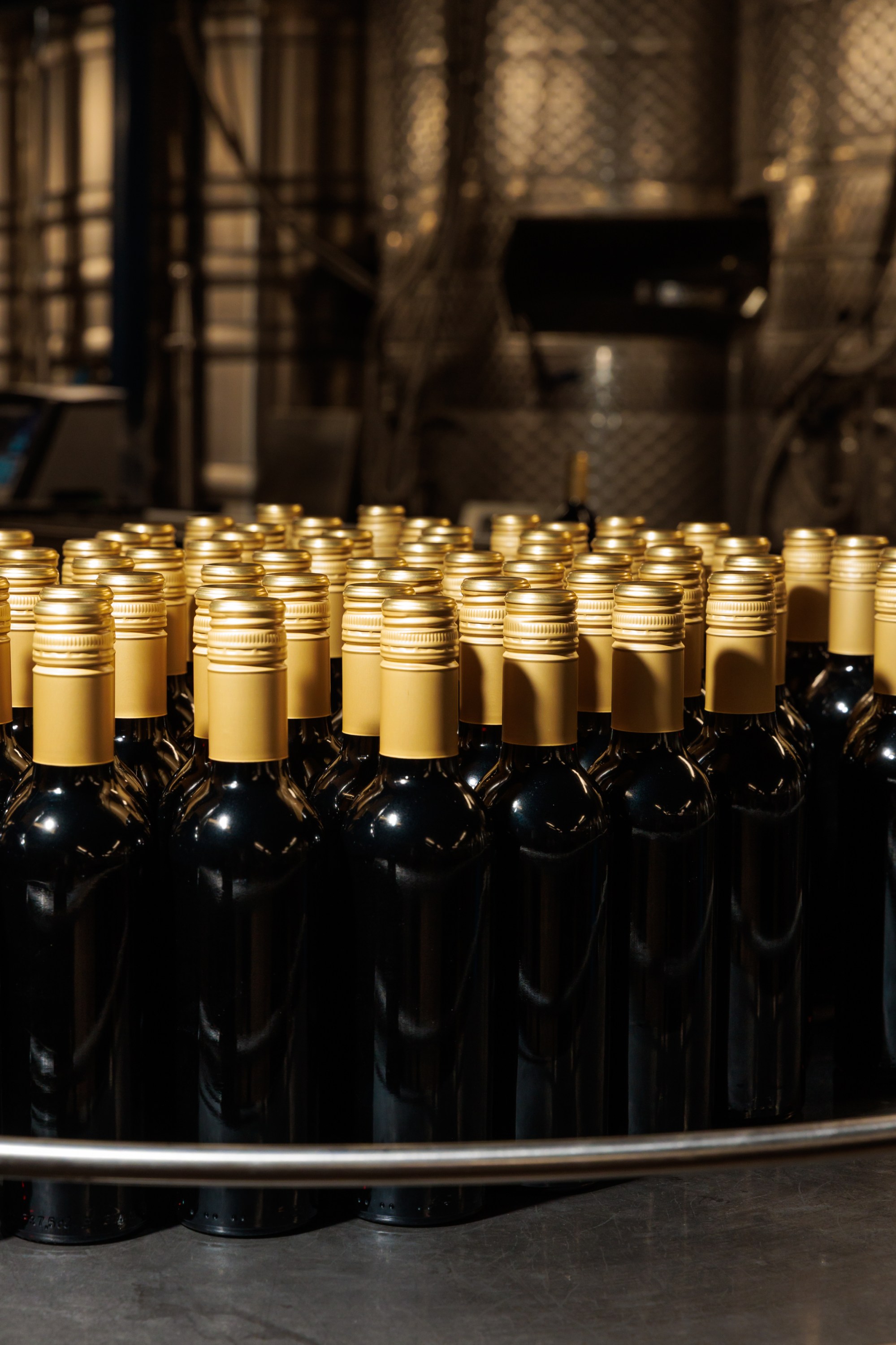
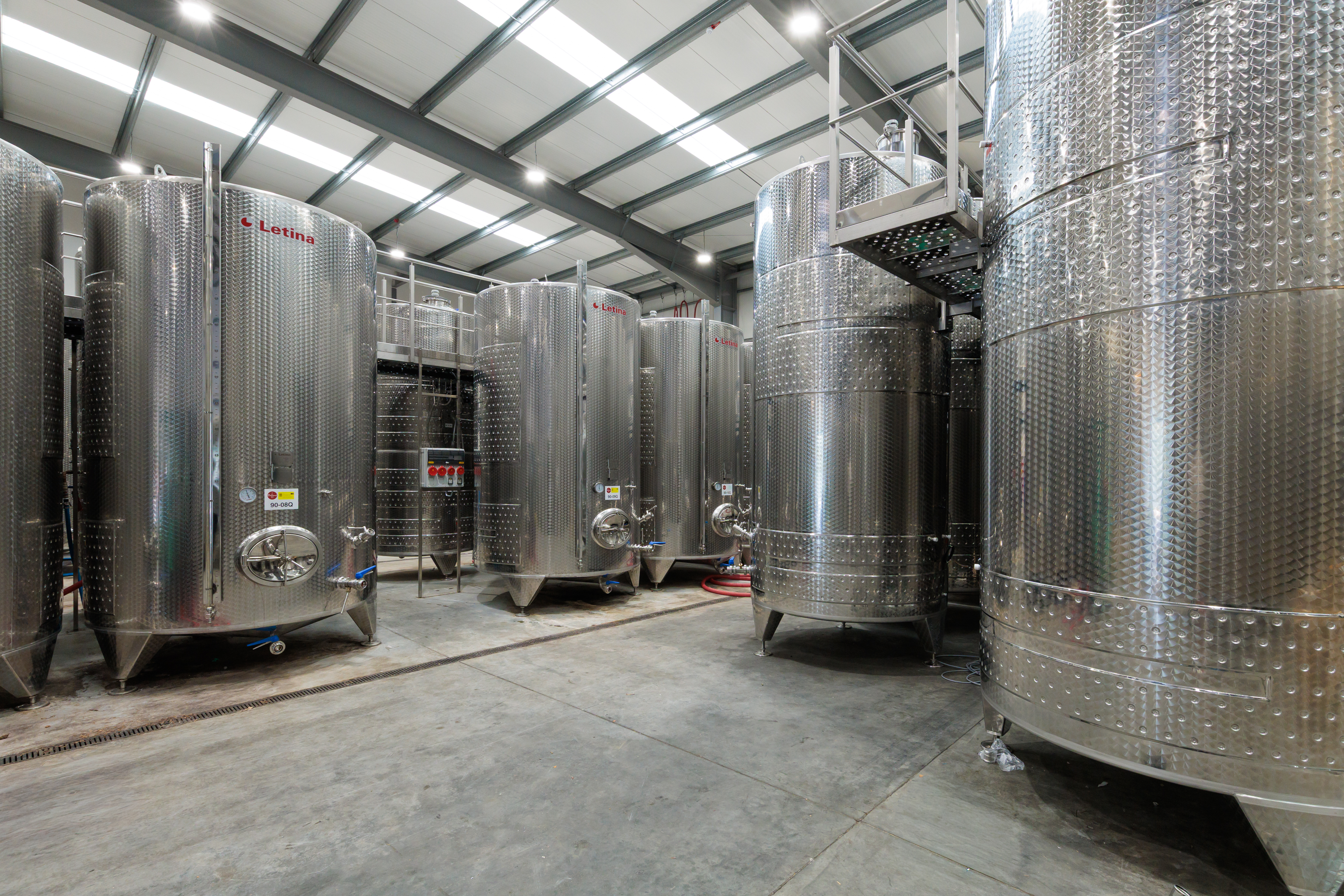
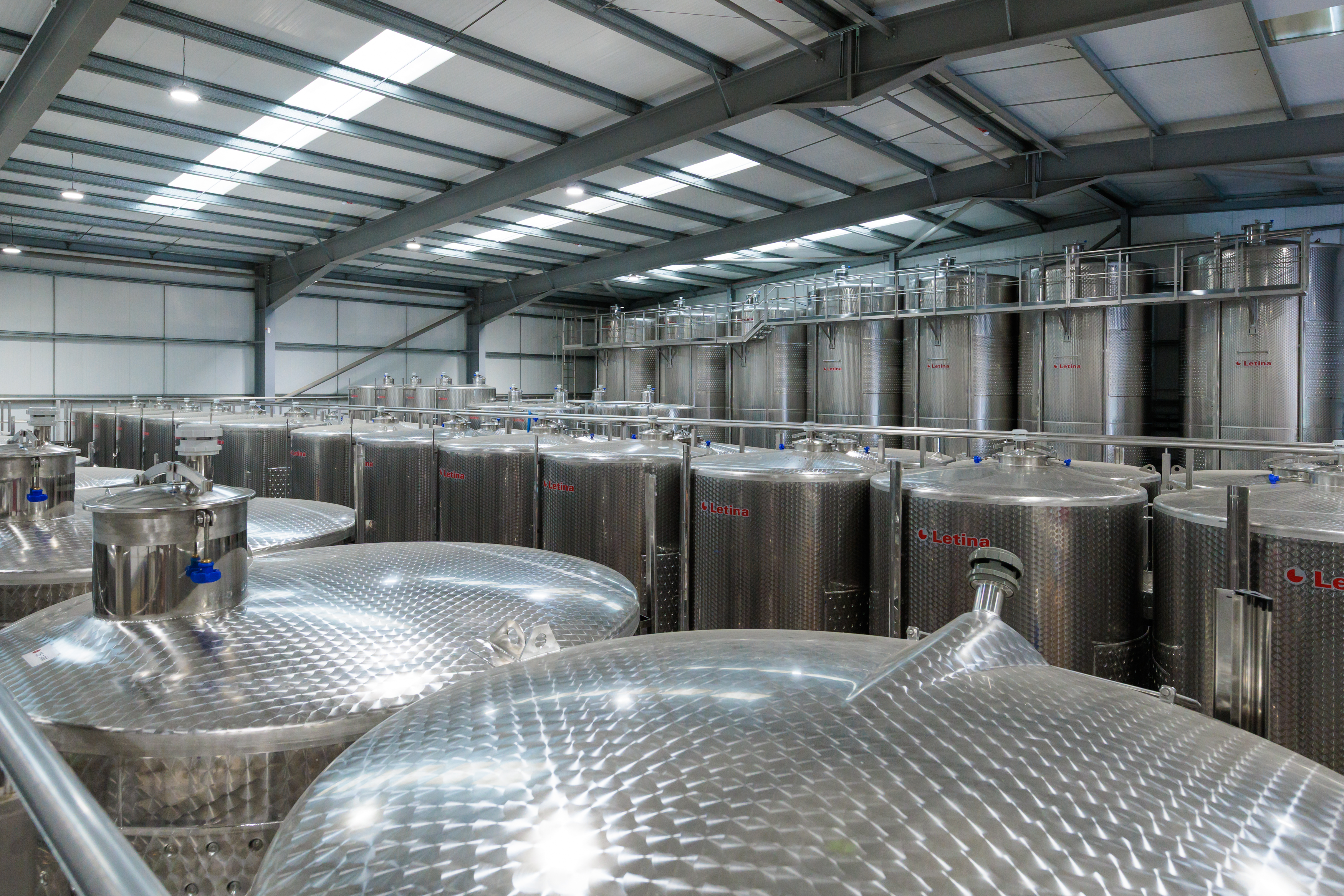
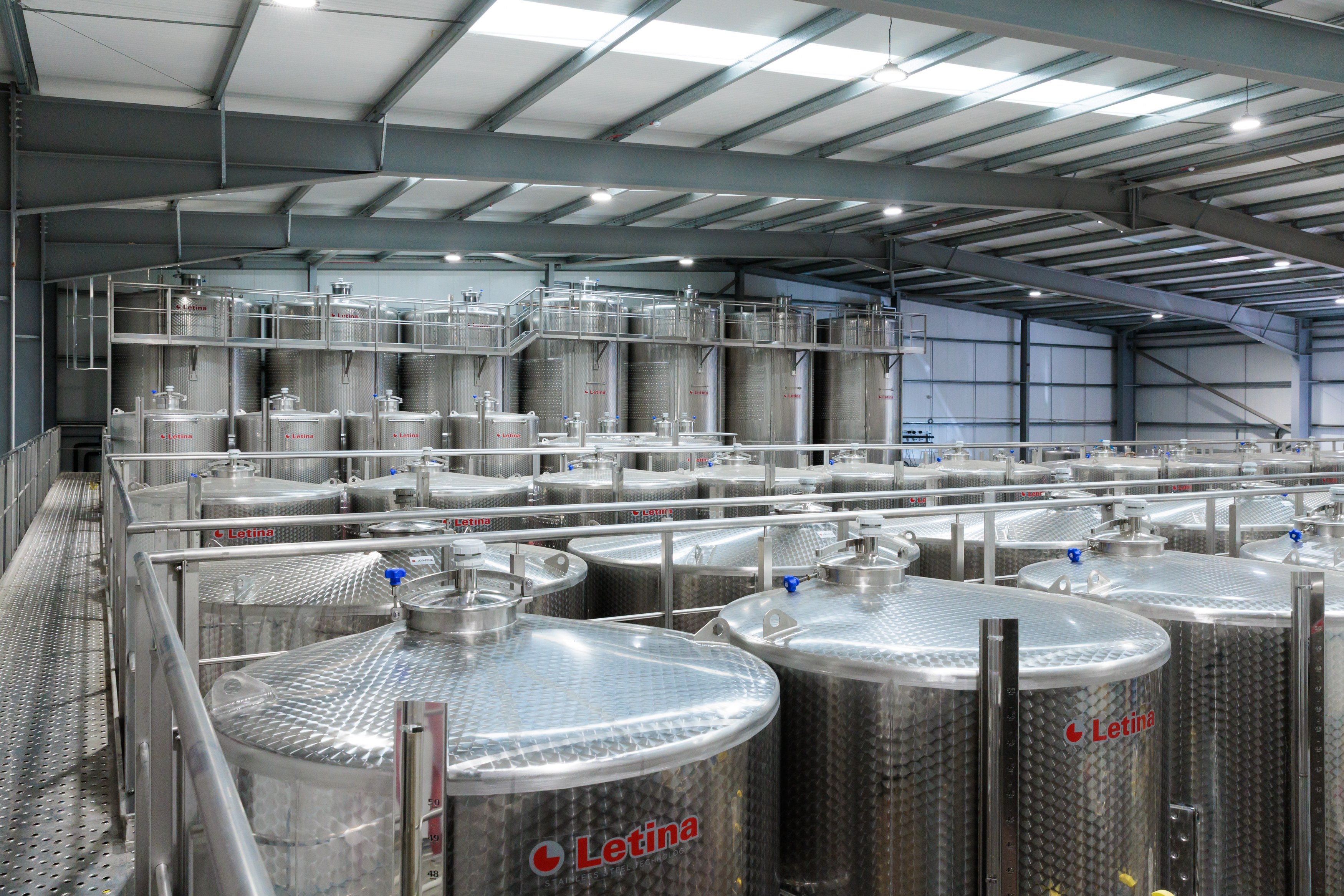
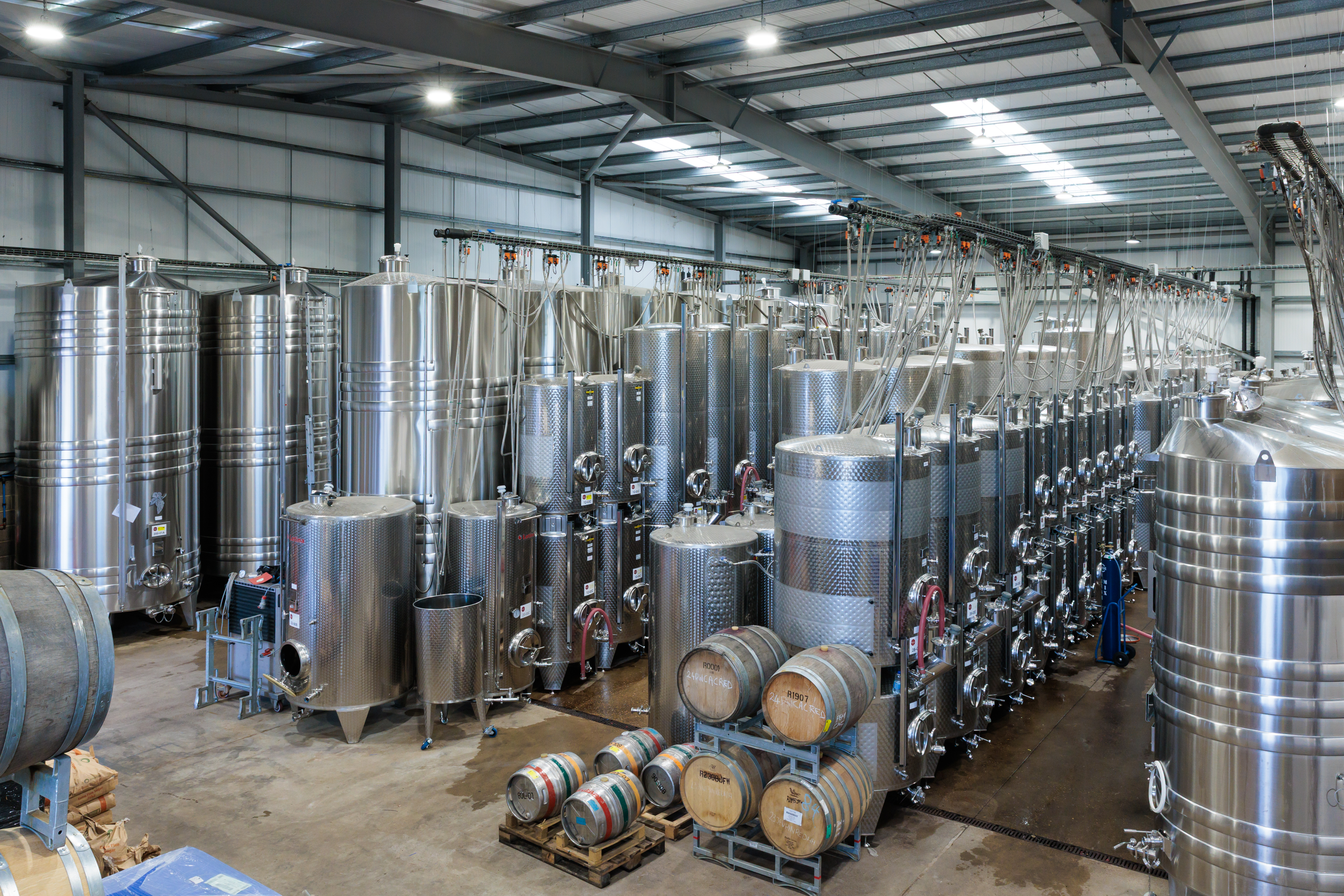
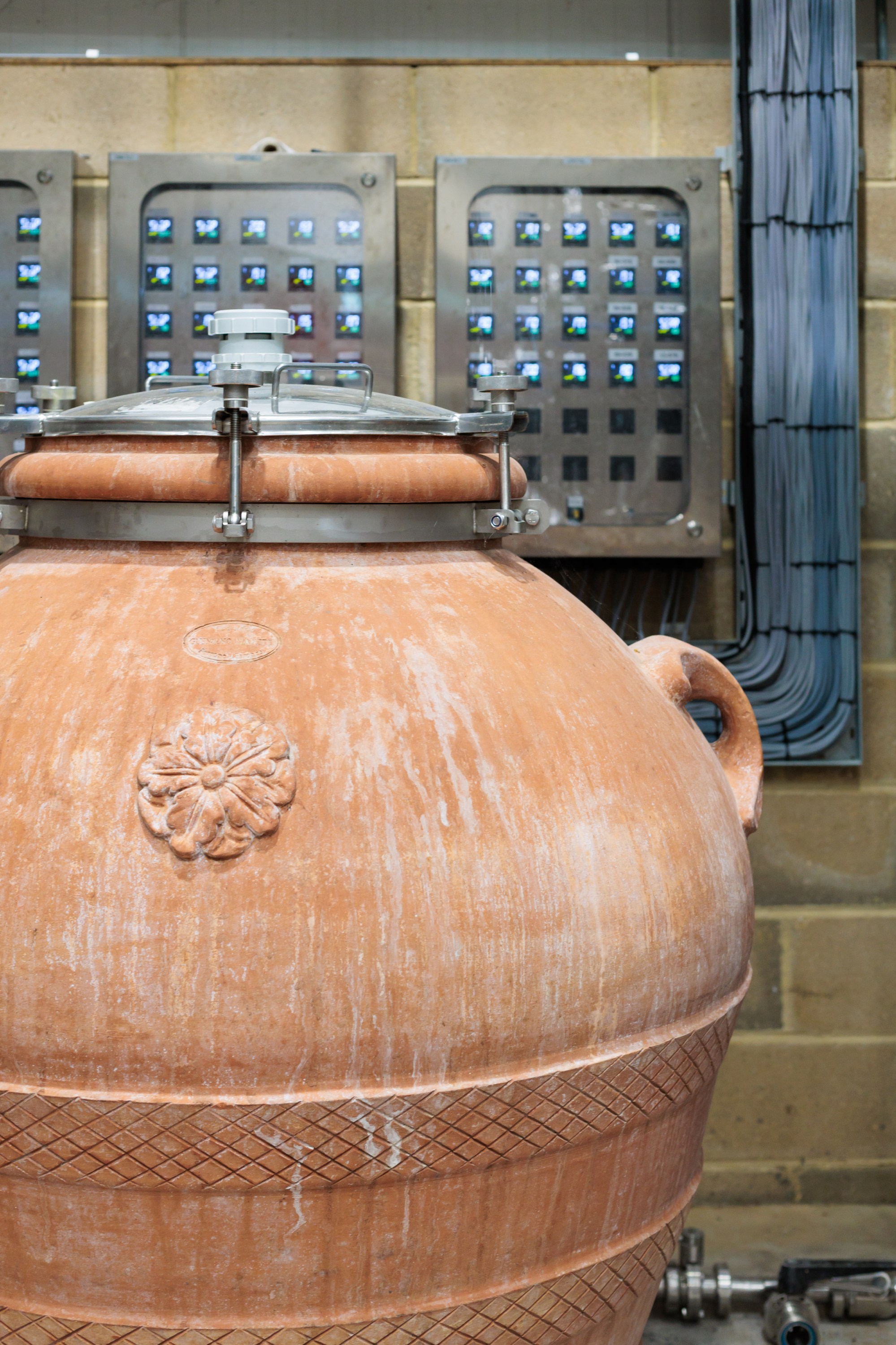
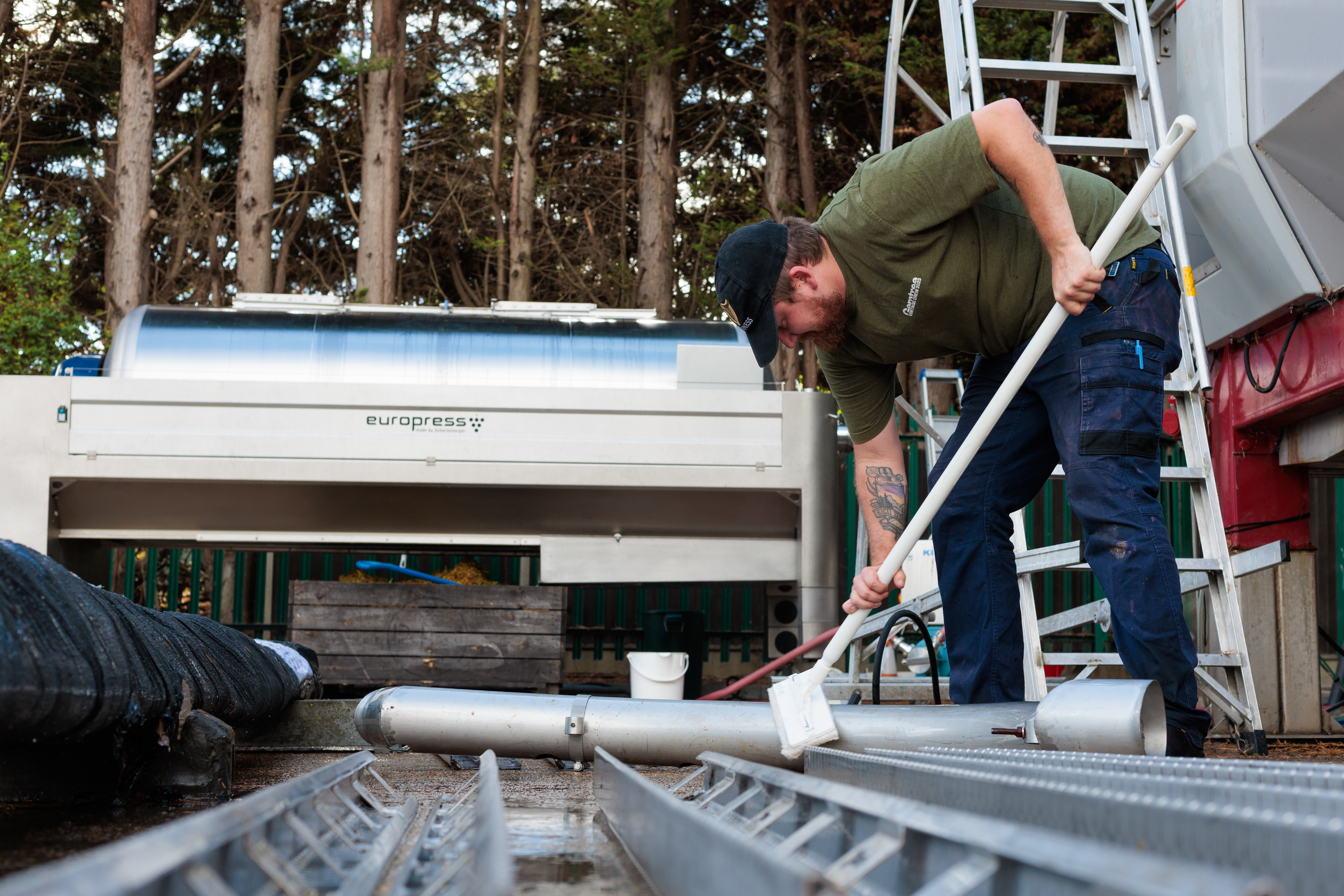
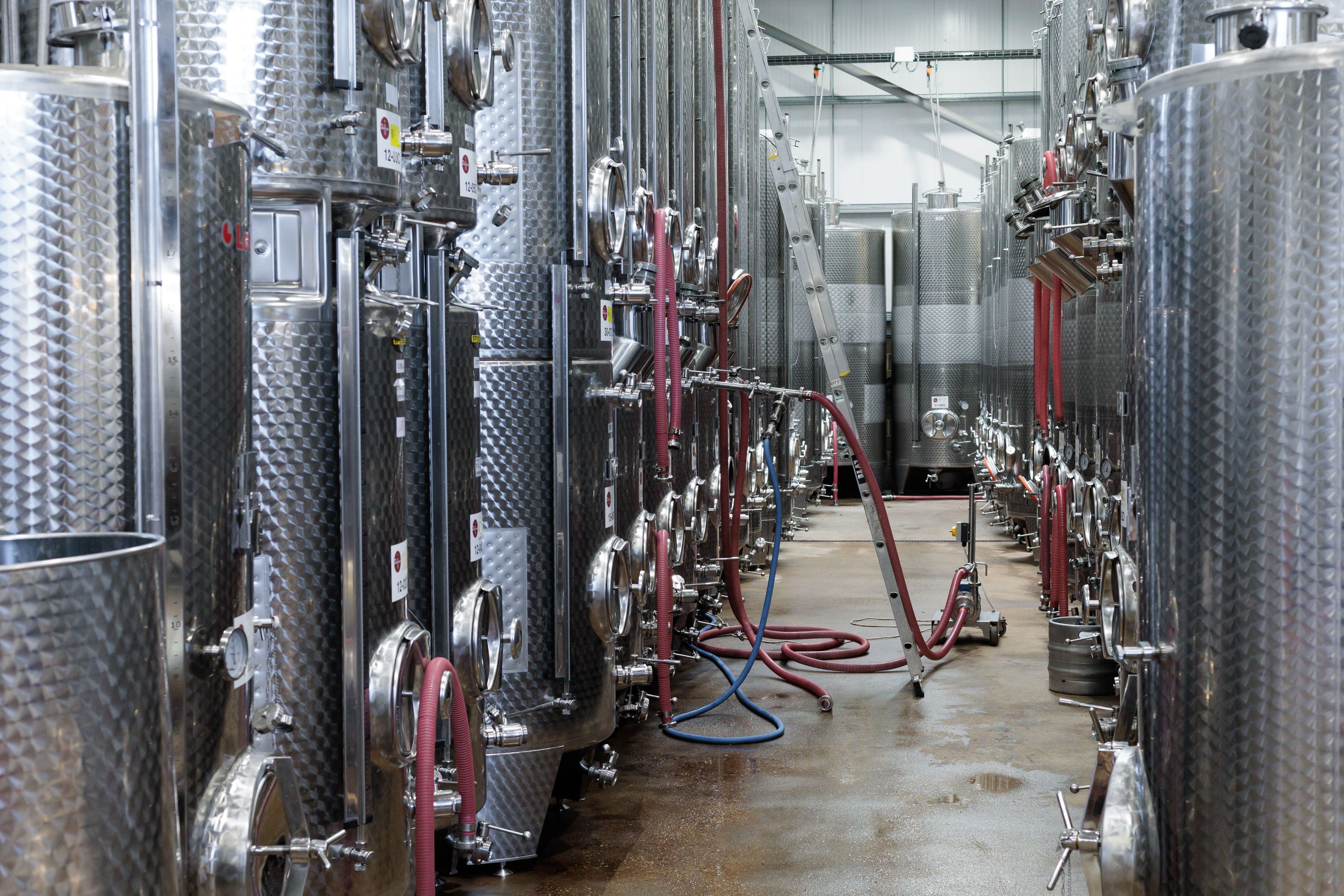
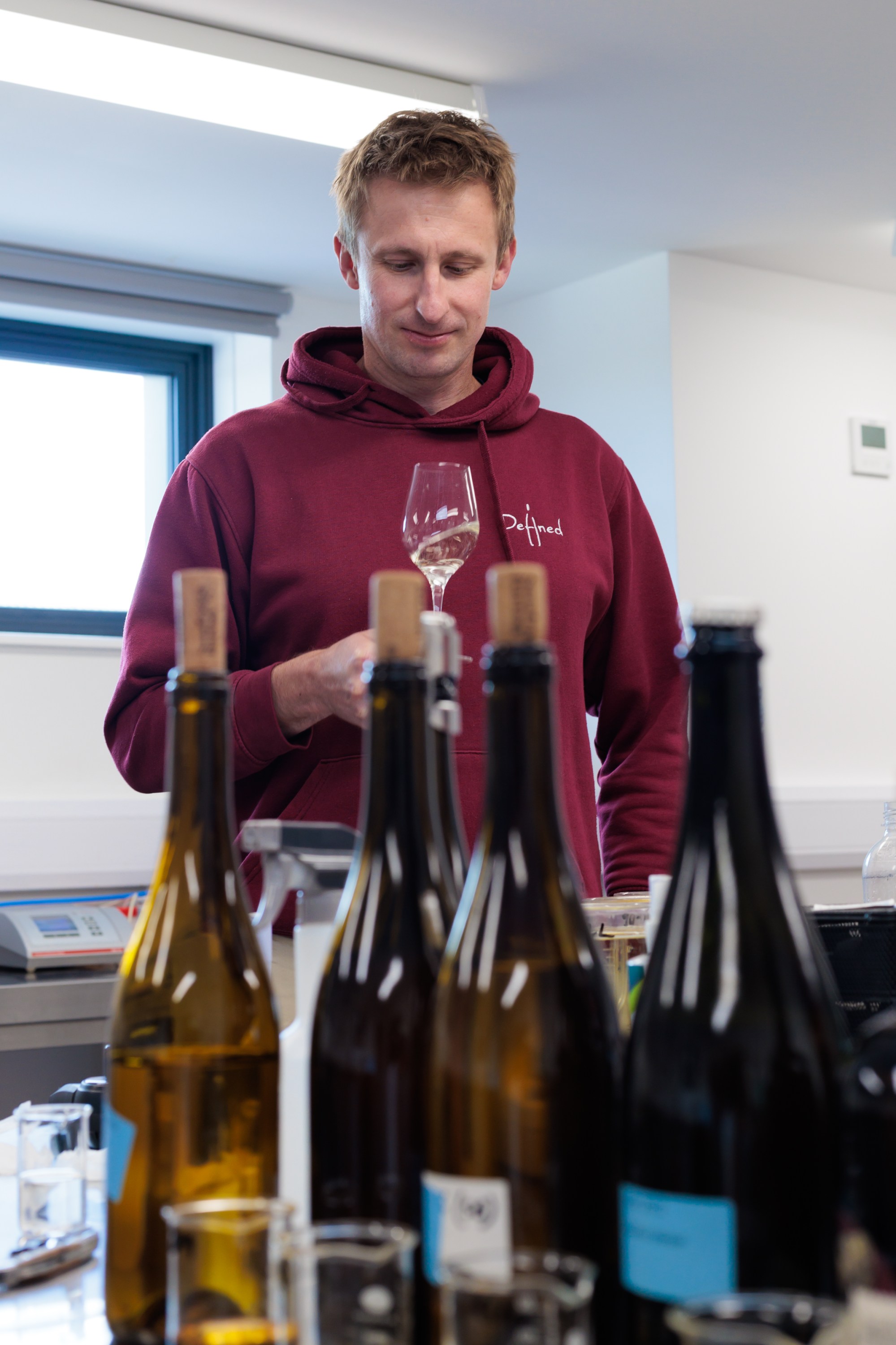
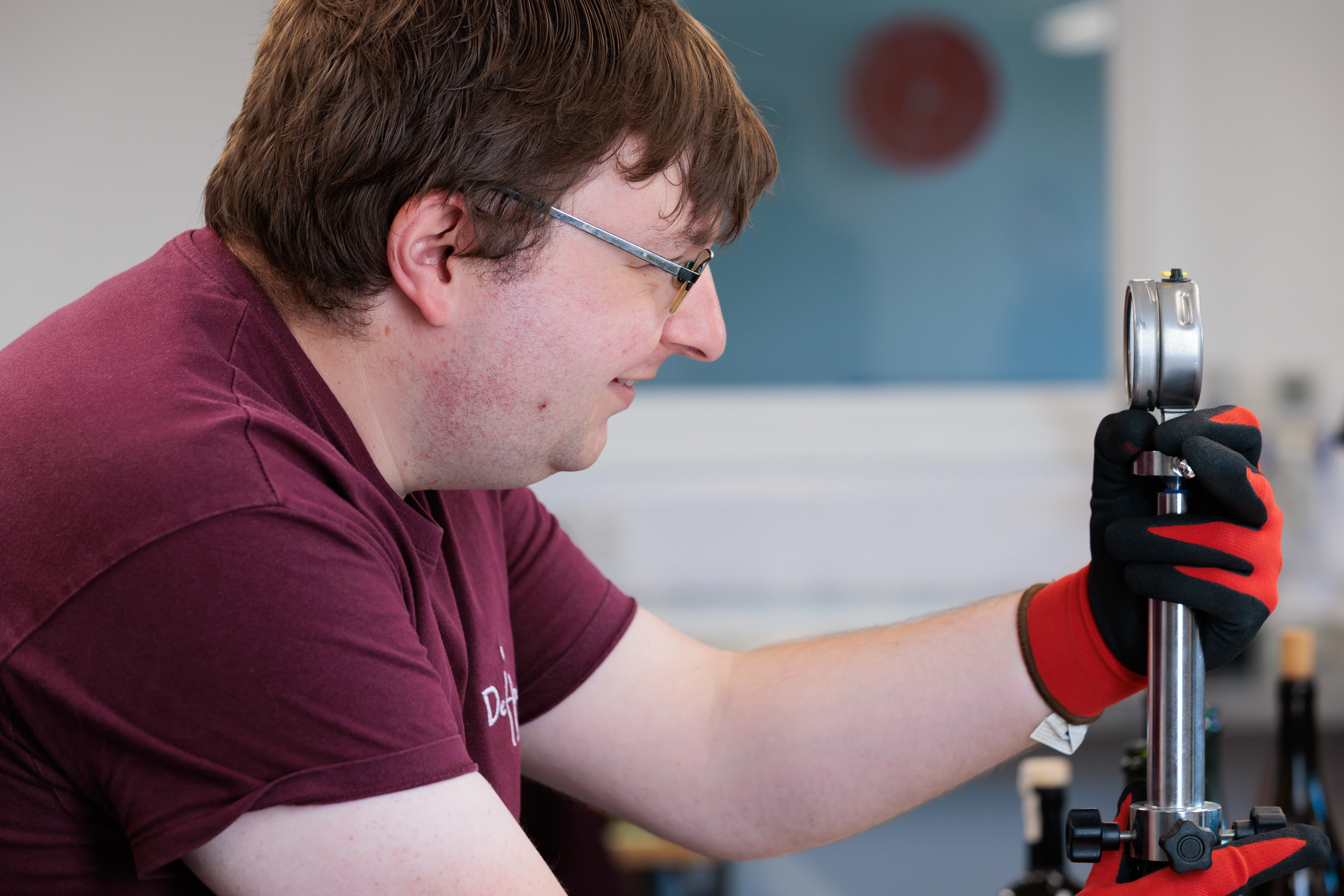
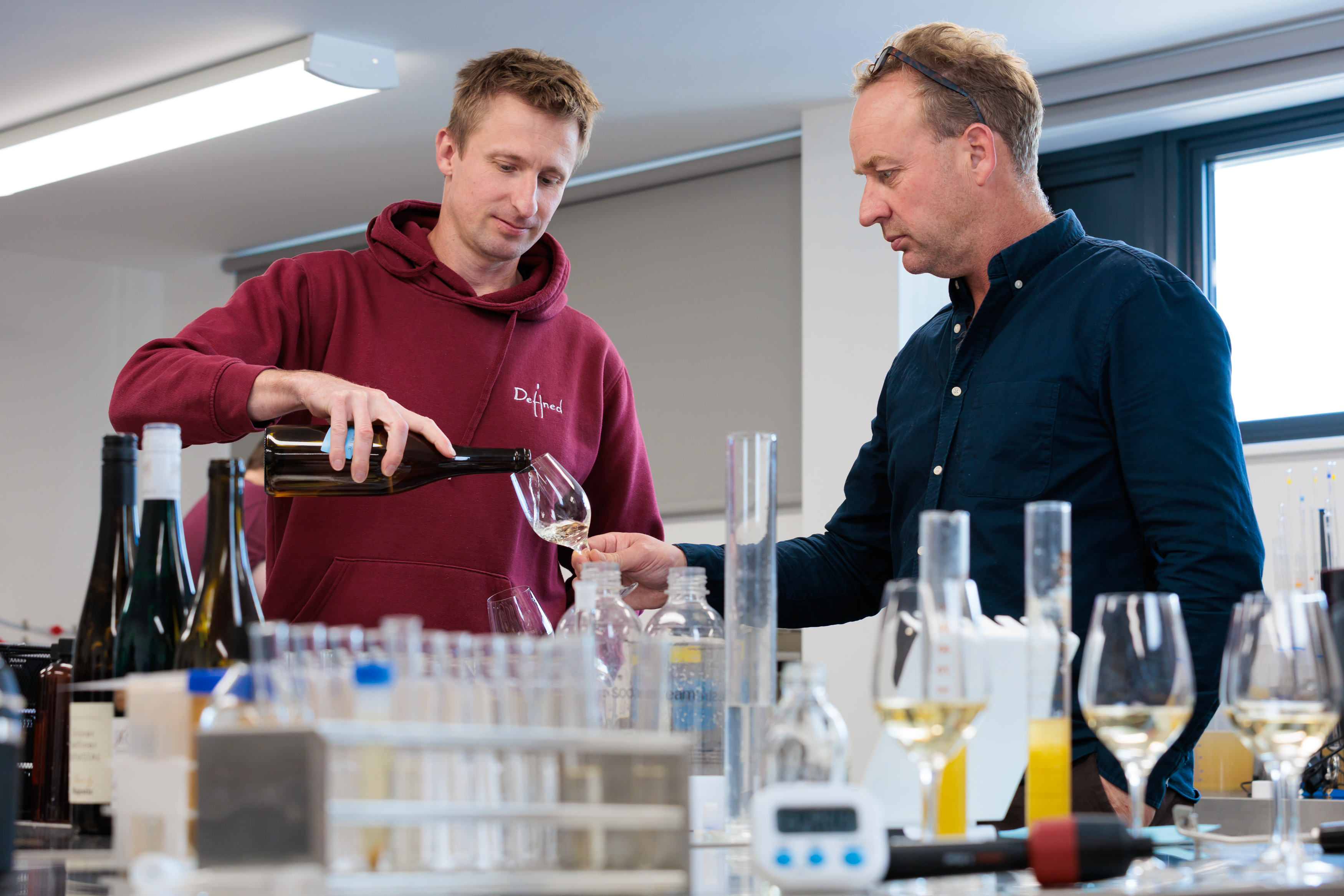
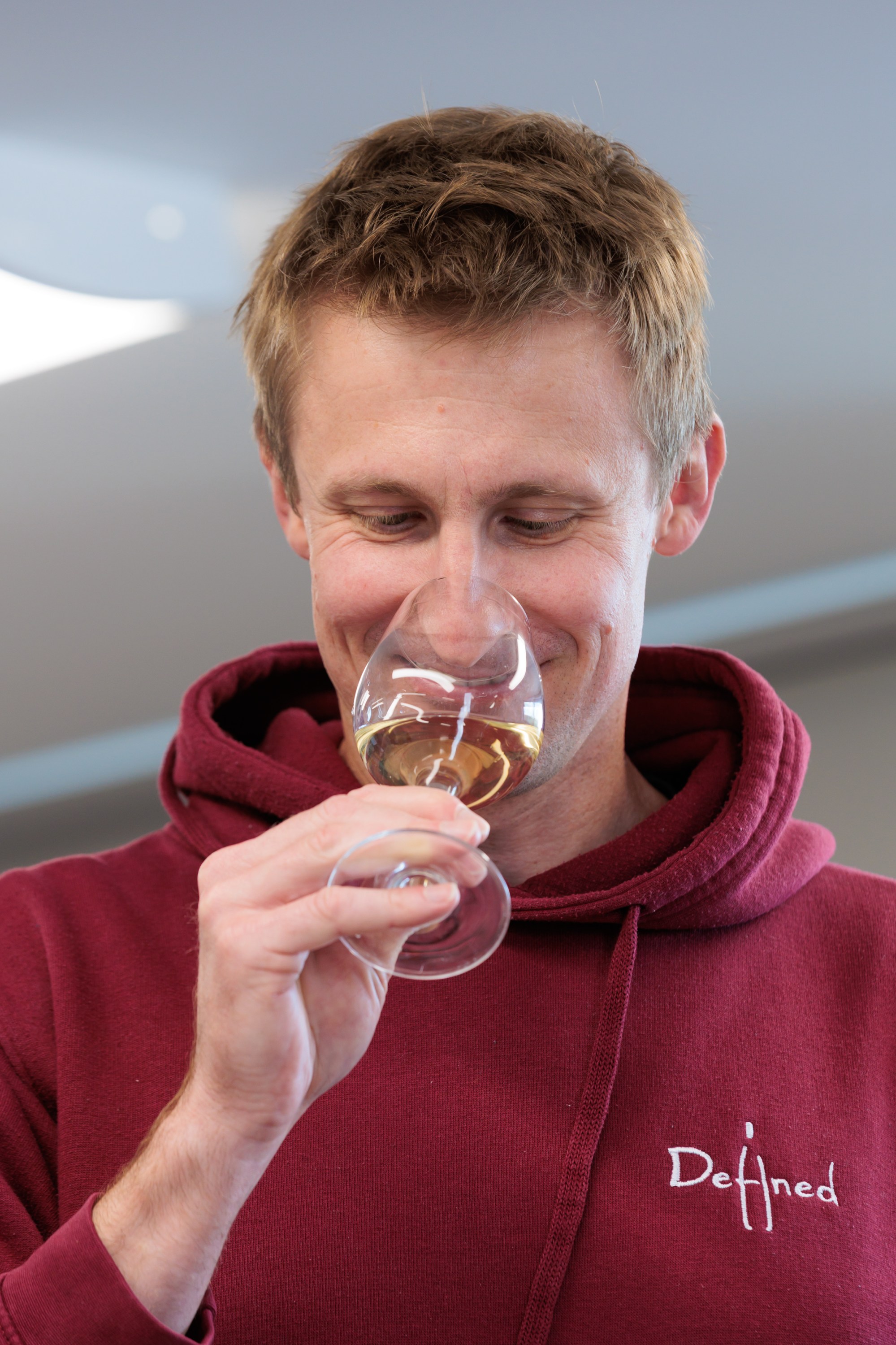
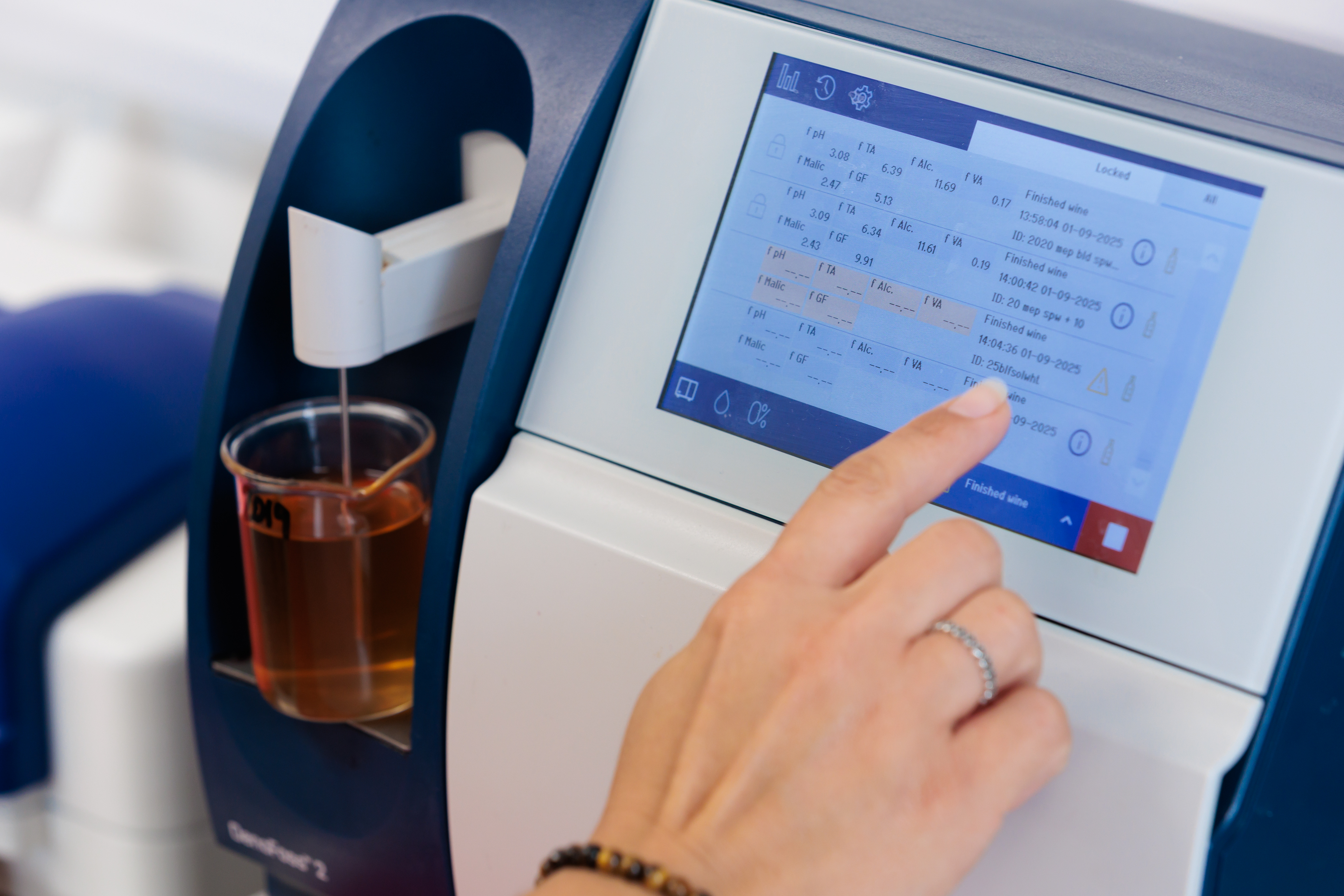
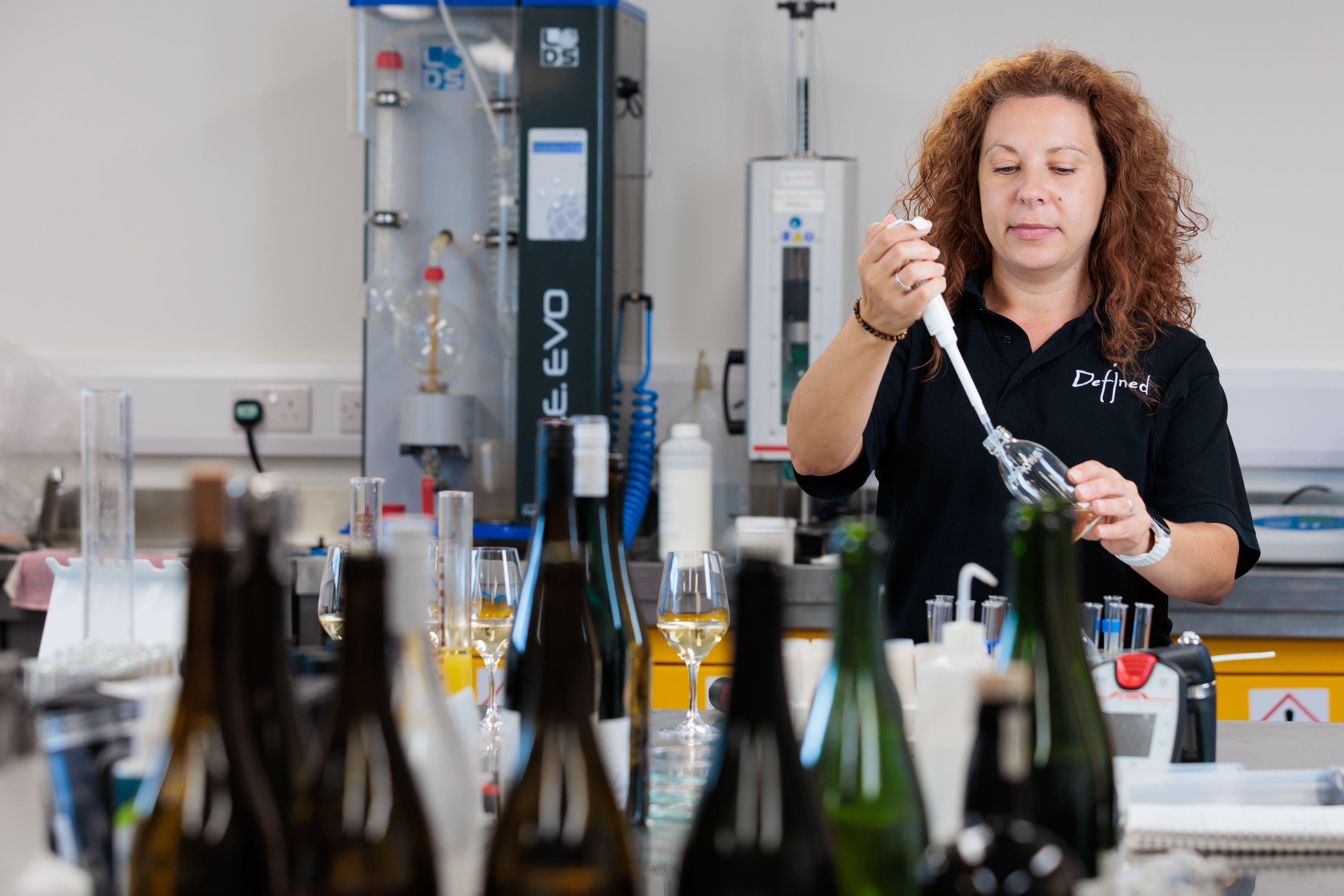
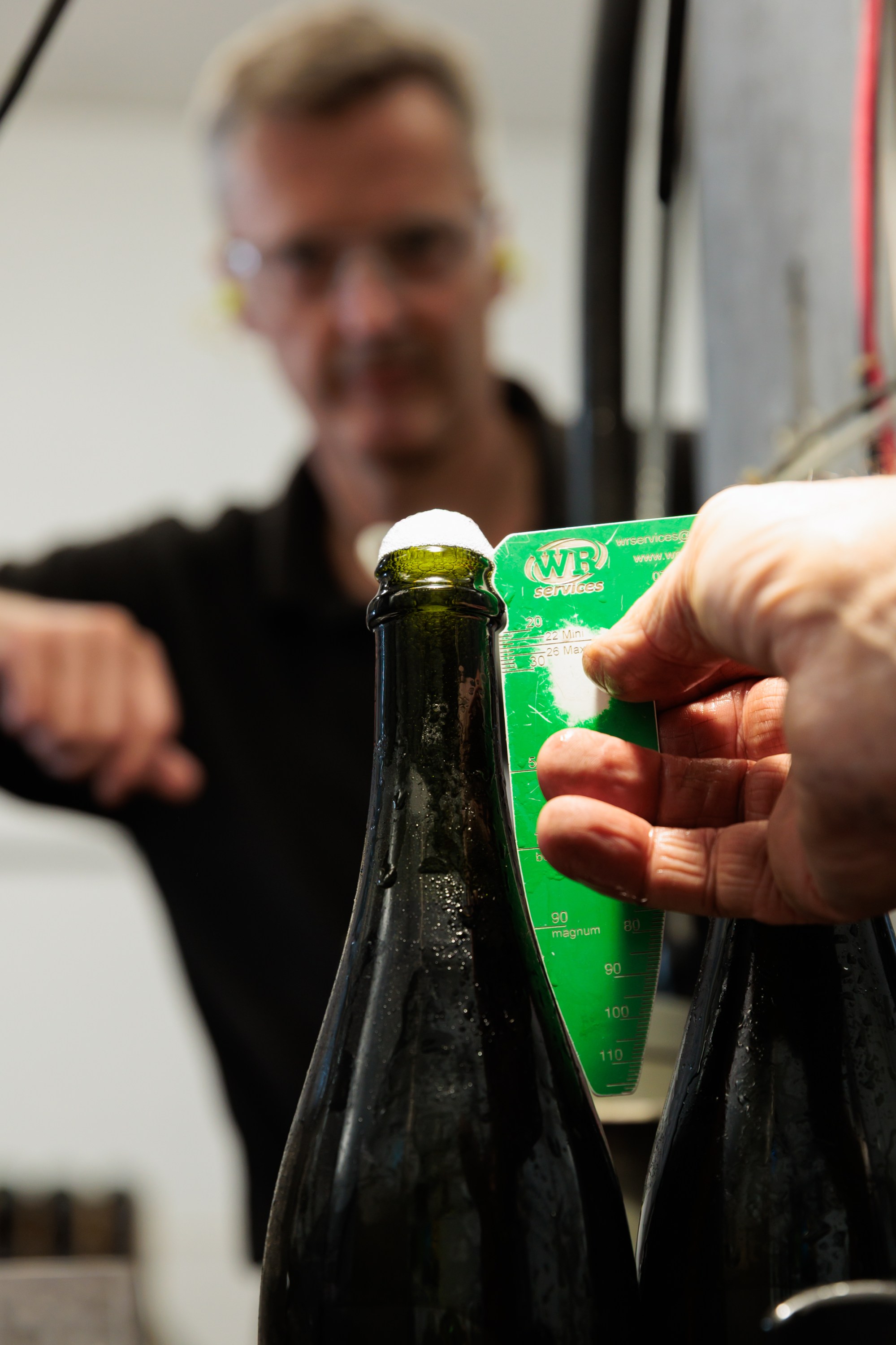
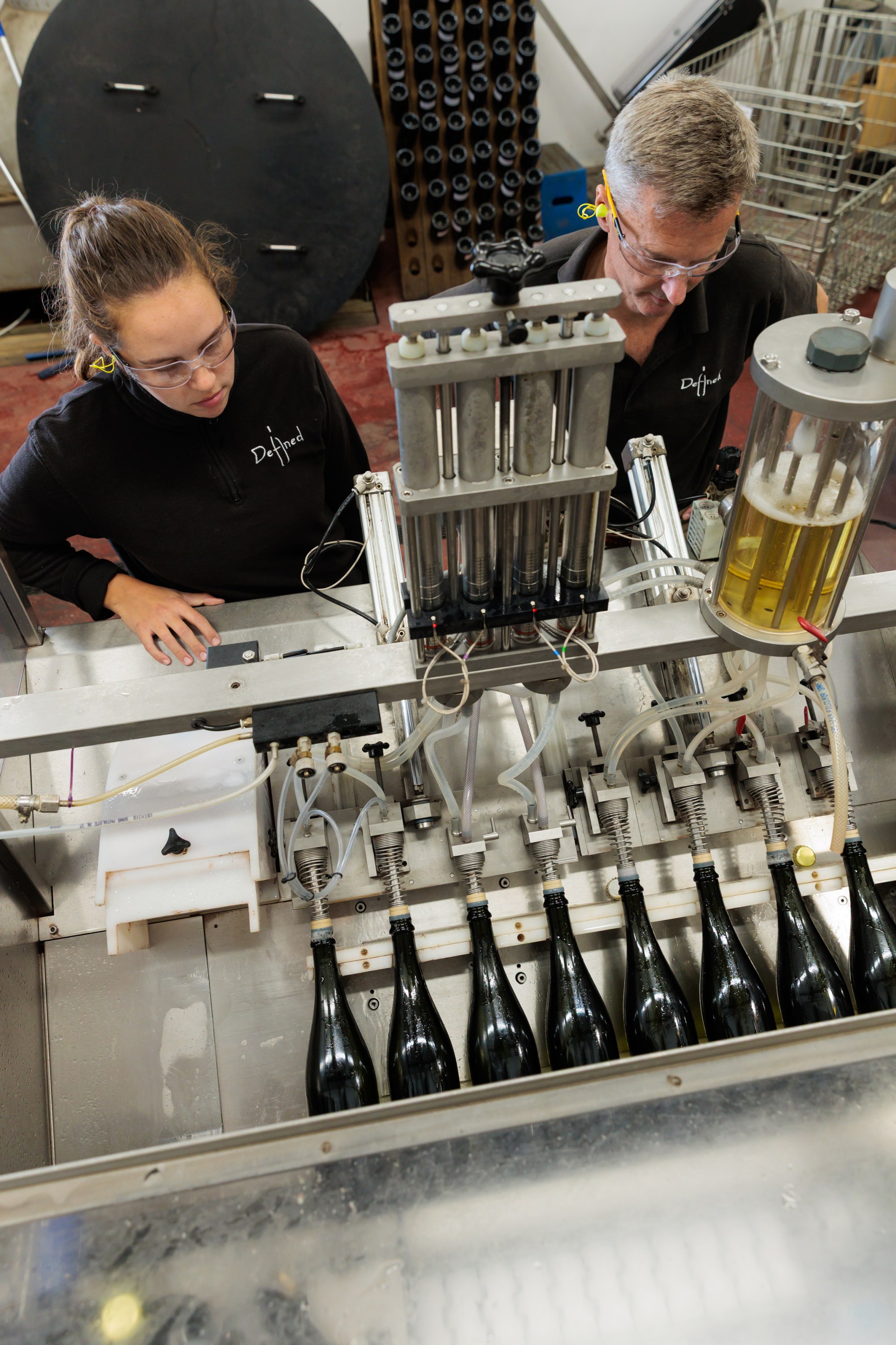
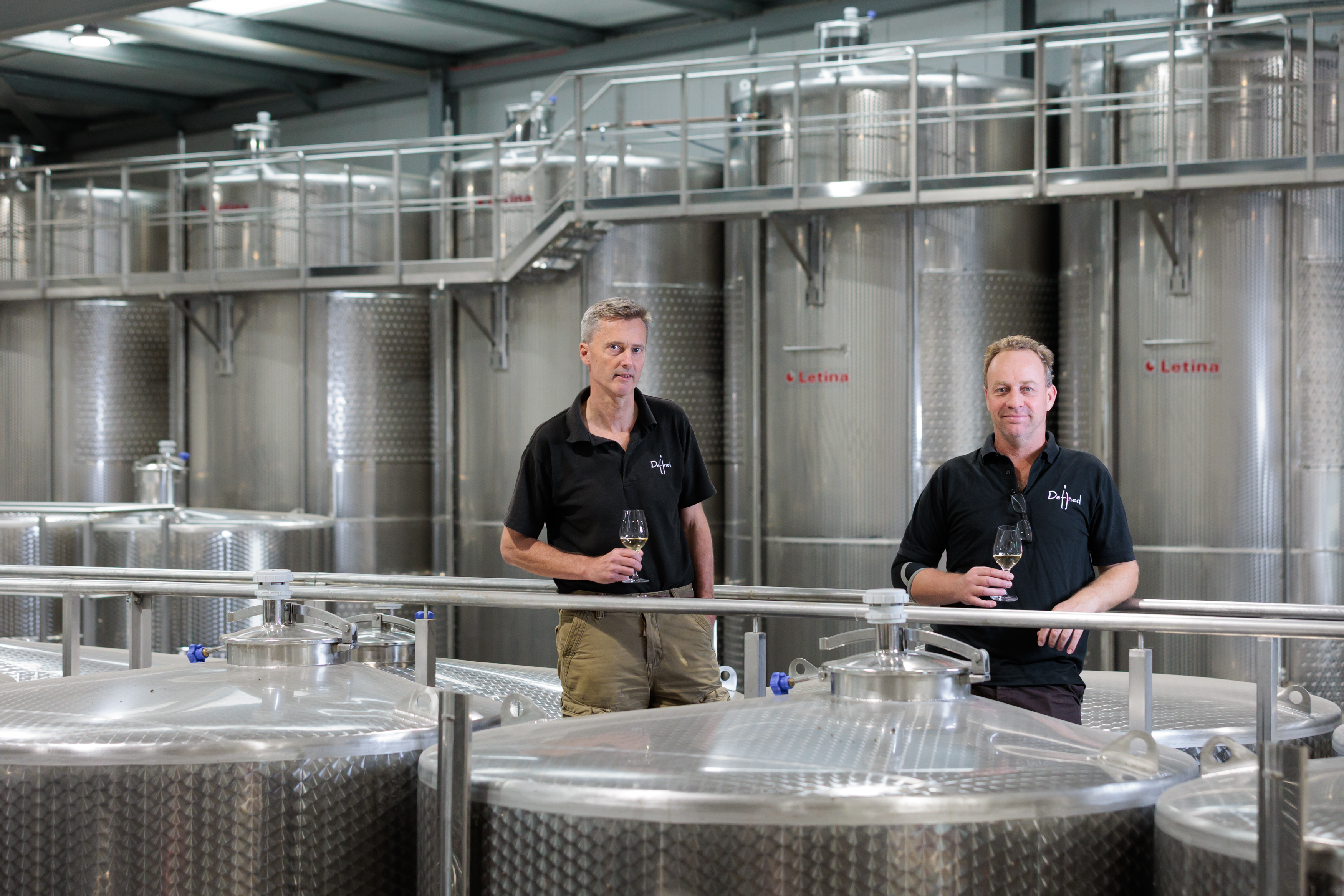
Photos: ©Martin Apps, Countrywide Photographic




